These plants and herbs can help reduce stress
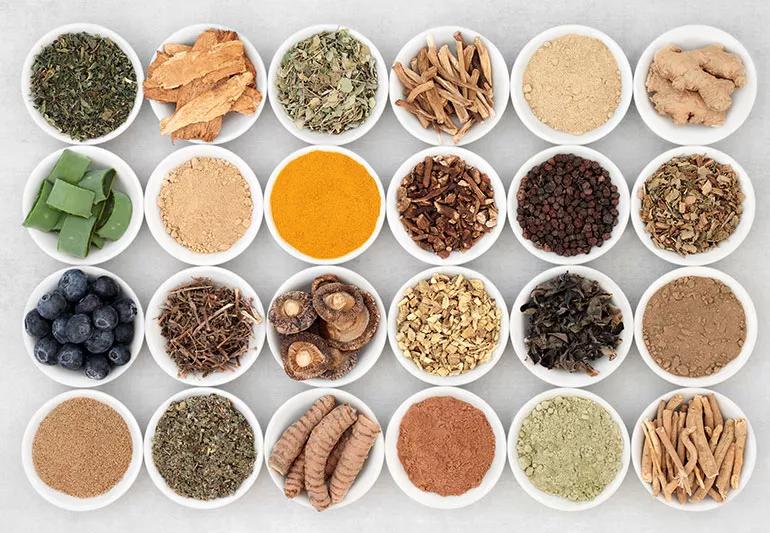
Stress affects us all at different times and in different ways.
Advertisement
Cleveland Clinic is a non-profit academic medical center. Advertising on our site helps support our mission. We do not endorse non-Cleveland Clinic products or services. Policy
You might be worried about a big work presentation. Or maybe you feel exhausted from dealing with in-laws. Or it could be something as simple as forgetting milk at the grocery store.
Whatever it is, managing stress can be difficult.
That’s where adaptogens come in — they’re here to help you deal with life’s stressful moments.
Adaptogens help your body’s resilience against physical, emotional and environmental stress. And adaptogens, like ashwagandha, rhodiola rosea and Siberian ginseng, have been used for centuries. But how do you know if they’re right for you?
Registered dietitian Sarah Thomsen Ferreira, MS, MPH, RD, IFNCP, explains how adaptogens work and which ones you should try.
Adaptogens are a group of plants and herbs that can reduce stress. They do so by increasing your resistance and tolerance to tense situations.
There are more than 70 plants and herbs that fall into the adaptogen category. The use of adaptogens can be traced back to Chinese medicine and Ayurvedic medicine. They were also used throughout Europe during World War II.
Since then, various adaptogens have been studied. But more research is needed to truly understand how they work.
Adaptogens can affect how much cortisol is released in your body when you’re stressed. Less cortisol can mean less of a physical stress reaction.
Advertisement
As stress is connected to your nervous, endocrine and immune systems, it can cause physiological changes like an increased heart rate. Again, adaptogens can help how your body responds physically to stress.
“Some of these plants that fall into the adaptogen category also seem to be able to increase attention and endurance,” says Thomsen Ferreira.
Adaptogens may also help with:
With more than 70 options to choose from, it can be hard figuring out where to start. Thomsen Ferreira suggests trying these.
Also known as Indian winter cherry or Indian ginseng, ashwagandha is an evergreen shrub. It’s grown in India, Africa and some parts of the Middle East.
Research shows that ashwagandha may reduce cortisol levels and inflammation. It also has antiaging properties and may improve your memory and immune function.
“What researchers found is that taking 300 milligrams per day of ashwagandha not only reduced cortisol, but also reduced food cravings, perceived stress and body weight,” says Thomsen Ferreira.
Other research shows that ashwagandha can help reduce anxiety and improve sleep.
This plant, which grows in tropical areas, has been used for centuries in traditional Ayurvedic medicine.
Bacopa monniera is also known as water hyssop, herb of grace and brahmi.
According to research, bacopa monniera may improve brain function, reduce stress and anxiety.
“Bacopa monniera protects the brain are through antioxidants,” says Thomsen Ferreira. “It helps to stimuli enzymes in our body’s own antioxidant defense system.”
Also called Asian ginseng, this herb is grown in Korea, China and Siberia.
Panax gingseng contains ginsenosides, a chemical that may affect insulin levels and help lower blood sugar.
Research shows that panax ginseng may also reduce the severity of fatigue. It can also increase glutathione reductase and total glutathione.
“Glutathione is considered our body’s master antioxidant,” notes Thomsen Ferreira. “It helps regulate our natural detoxification systems.”
This plant has been long used in traditional medicine. It grows in Europe and Asia’s colder regions.
Research indicates that rhodiola rosea may increase energy and relieve fatigue, exhaustion and burnout. It can also help reduce unrest, irritability and tension.
“Rhodiola rosea can trigger your body’s ATP synthesis,” says Thomsen Ferreira. “This is the chemical energy produced in your mitochondria and it’s an essential energy source inside your cells.”
Advertisement
This fruit-bearing vine is native to northern China. It’s been used in traditional Chinese medicine.
Its berry, known as the five-spice berry, has a unique taste. It’s been described as sweet, salty, sour, bitter and pungent all at the same time.
Schisandra chinensis research shows it may help decrease blood glucose and cortisol levels, as well as also decrease interleukin production.
“If interleukin levels are too high, it can create cellular damage,” explains Thomsen Ferreira.
Also known as eleuthero, Siberian ginseng has been used in Chinese medicine for centuries. It’s also been studied in Russia in the ’60s and ’70s.
It has different active chemical components than American ginseng and Asian ginseng, and research shows that Siberian ginseng may help with fatigue, weight reduction and support physical activity. It may also help increase your cognitive function.
“One study with 130 men and women looked at fatigue, exhaustion, sleep and restlessness,” says Thomsen Ferreira. “They saw improvements in all those areas.”
Adaptogens are well tolerated by adults, but some noted common side effects include:
“Ashwagandha falls in the nightshade family,” says Thomsen Ferreira. “For some individuals, nightshades can trigger symptoms like joint pain and inflammation.”
Advertisement
If you’re pregnant, it’s best to avoid adaptogens, advises Thomsen Ferreira. She also recommends talking to your doctor before using any adaptogens.
And remember, adaptogens aren’t a cure-all. You should continue any stress management techniques and practices like meditation and yoga. But adaptogens may give you an added boost.
Adaptogens are available as supplements, tonics, liquid extracts, teas and powders.
One way you can incorporate them is in beverages like coffee and smoothies. For example, try an ashwagandha green tea latte.
You can even mix adaptogens in to your recipes. Thomsen Ferreira likes using them in energy bites or granola with almonds and seeds. There are even recipes online for adaptogenic cookies.
“There’s really no shortage of ways to use adaptogens,” says Thomsen Ferreira. “Incorporating adaptogens into our daily regimen can be a supportive way to decrease daily stress.”
Advertisement
Learn more about our editorial process.
Advertisement

Far more research is needed to support the many touted health claims
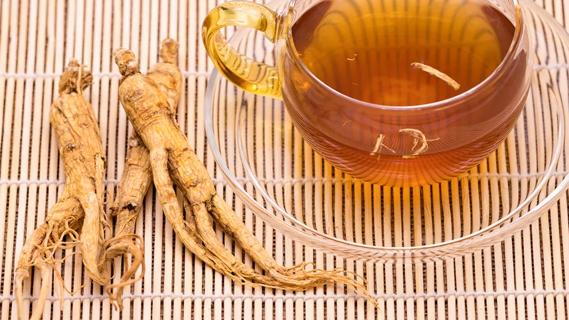
Two types of ginseng work in different ways to help improve energy, immunity and heart health

Besides questionable effectiveness, herbal supplements aren’t safe for everyone
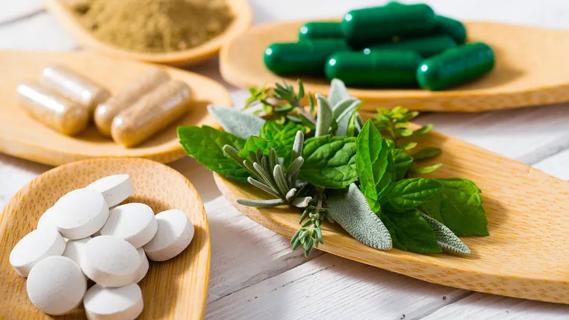
Natural doesn’t mean they’re safe or effective

This traditional Chinese medicine formulation may help with stress, depression and more
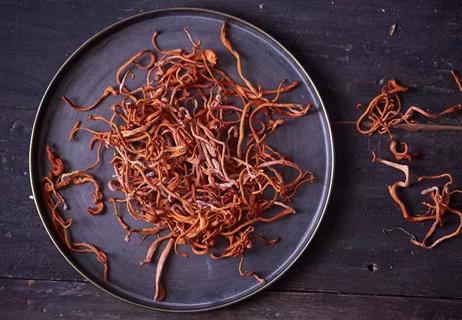
With anti-fatigue, anti-aging and anti-cancer claims, this fungi still needs more studies

Properly used, this herb may relieve joint and muscle pain
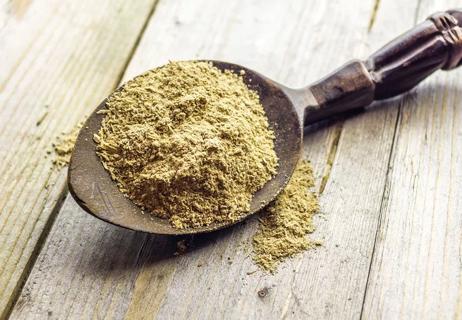
This herbal supplement comes with health risks, especially if you take antidepressants

If you’re feeling short of breath, sleep can be tough — propping yourself up or sleeping on your side may help

If you fear the unknown or find yourself needing reassurance often, you may identify with this attachment style

If you’re looking to boost your gut health, it’s better to get fiber from whole foods